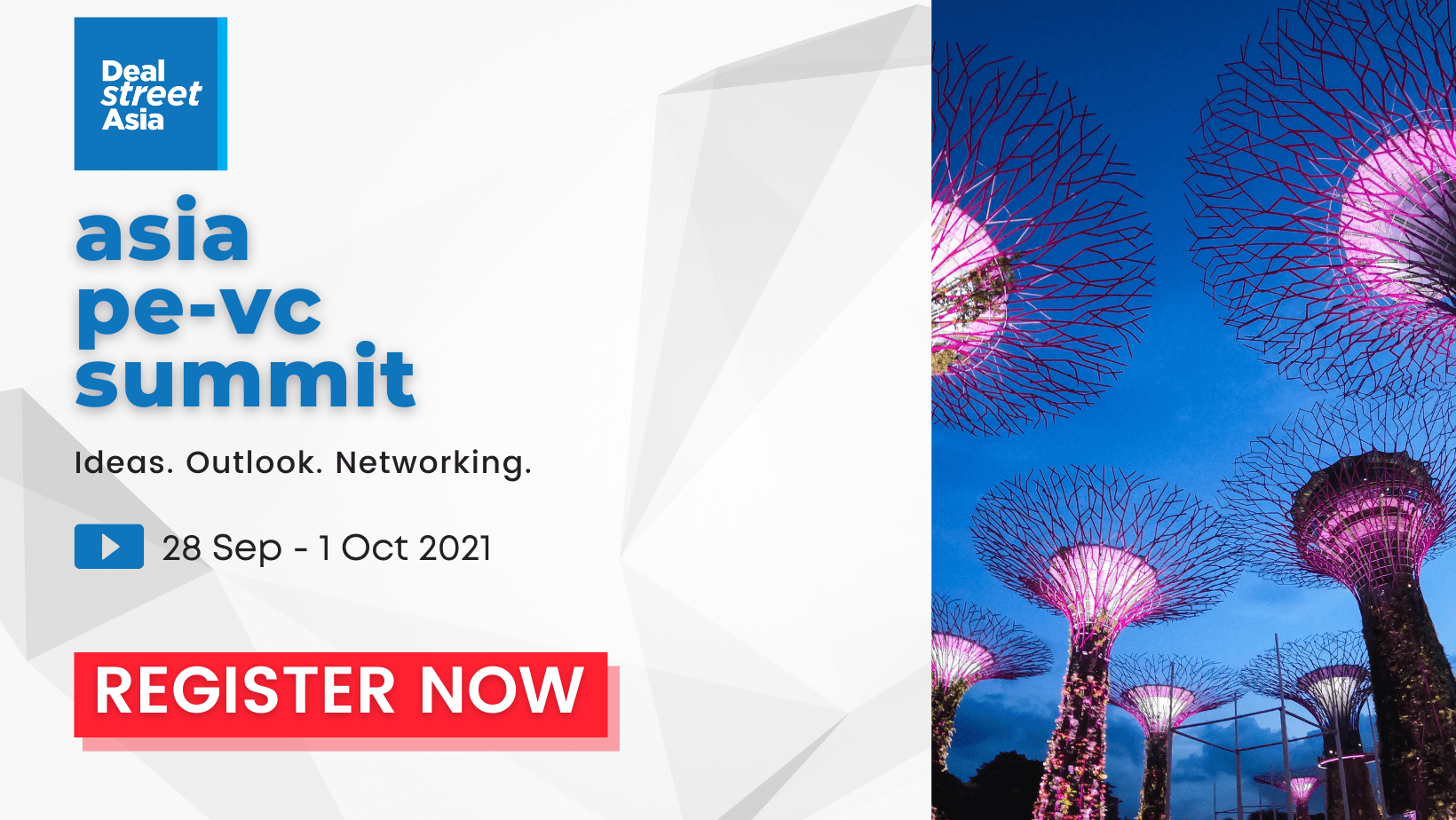We are happy to announce five new sessions with the region’s most influential deal-makers and news-makers from the tech startup and investor community.
We have one private equity discussion, two fireside chat sessions featuring Grab Financial Group Senior Managing Director Reuben Lai and GoTo President Patrick Cao apart from two country-focused panel discussions on the Philippines and Vietnam.
At DealStreetAsia’s Asia PE-VC Summit 2021, we are bringing together the top private equity, venture capital and startup executives from Southeast Asia, India and China to take us through key themes, opportunities and challenges from close quarters.
Join the conversation and network with hundreds of leading industry executives on 28 September – 1 October at the Asia PE-VC Summit 2021.
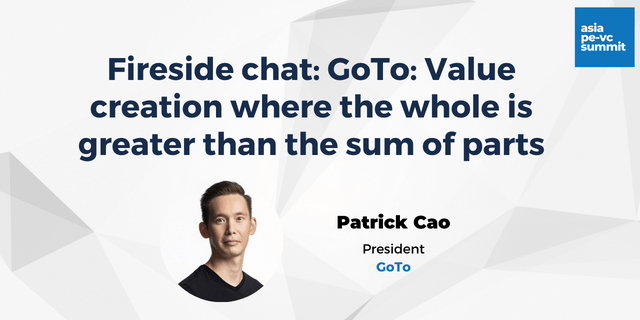
In a landmark transaction in May this year, Indonesia’s on-demand app Gojek and e-commerce company Tokopedia announced a merger to form a holding company – GoTo – with businesses spanning ride-hailing, food delivery, online shopping and payments businesses.
GoTo is said to be seeking a valuation of up to $40 billion for its IPO planned for end-2021, a figure that is similar to Grab’s valuation when it announced its SPAC merger with Altimeter Group.
The GoTo combine that includes ride-hailing, e-commerce vertical, and financial services also enjoys a huge home market advantage. According to Google, Temasek, and Bain & Co’s recent study, Indonesia’s GMV was $44 billion in 2020, almost half of Southeast Asia’s combined market. This is poised to reach $124 billion by 2025. More than 60 million Indonesians will join the ‘consumption class’ — individuals with over $3,500 in annual revenue. Going forward, food delivery and financial services will likely be the most promising businesses for GoTo.
How does the merger change the pecking order for the super app race in Indonesia with the GoTo combine taking on rivals Grab & Sea? How will GoTo manage the integration issues and overlaps in functions? Is GoTo overvalued or does the combination of different ecosystems under one roof add to the attractiveness of the asset? What will GoTo’s narrative be as it prepares its IPO roadmap? How does GoTo see its growth potential outside the home turf?
GoTo president Patrick Cao will share insights on the journey ahead for the merged entity. Cao is responsible for overseeing the finance, corporate development, investor relations and investment activities of GoTo. Previously the President of Tokopedia since 2016, Cao was responsible for the CFO Office, financial technology businesses and global partnerships.
Let’s hear from Patrick Cao as he takes us through the region’s biggest tech merger.
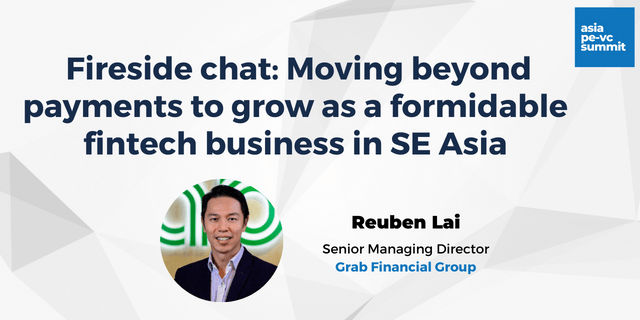
Grab, one of Southeast Asia’s most valuable startups, started as a ride-hailing business in 2012 and gradually diversified into food and deliveries and fintech offering myriad services under the super app umbrella, tapping an addressable market of 650-million plus people in the region. In a milestone deal earlier this year, Grab announced a $40 billion deal with special purpose acquisition vehicle Altimeter Growth Corp and is working to list on the Nasdaq in the fourth quarter.
Per its recent Q1 numbers, Grab has benefited from a surge in the food and delivery business as well as digital payments while its mainstay mobility vertical has been reeling from the pandemic-induced movement curbs in its core markets. Grab’s financial services segment recorded its highest quarterly total payment volume (TPV) so far in Q1 2021 with year-on-year growth of 17%. Grab projects that the total TPV of its financial services division will touch $11 billion in 2021, clocking a growth of 23.6% YoY. Furthermore, Grab posted strong growth in lending and insurance segments in Q1.
Grab has plans to move beyond payments as it bulks up its financial services layer. It has tied up with SingTel to set up a digital bank in Singapore that is likely to commence operations next year. In Indonesia, however, Grab’s financial services business will see an impact following the merger between tech giants Gojek and Tokopedia, which is a co-investor in e-wallet OVO along with Grab.
How does Grab see its fintech play evolving beyond the payments business? Will we see Grab getting into acquisition mode to bulk up its activities within the segment? How do we see OVO ownership changing following the GoTo merger in Indonesia? How will Grab leverage the partnership with Indonesian conglomerate Emtek Group to deepen its presence in SE Asia’s largest market? What are the group’s plans for other SE Asian markets? When will the financial services business likely become EBITDA positive?
Grab Financial Group senior managing director Reuben Lai will throw light on these questions and more about the road ahead for the company’s fintech ambitions. At Grab, Reuben has launched multiple successful businesses, including a car leasing platform, Grab for Business, and Grab Ventures. He was also the Chief of Staff to Grab’s CEO. Before joining Grab, Reuben was a co-founder and CEO of a telemedicine startup.
Join this conversation on how Grab is looking to build a fintech business beyond payments.
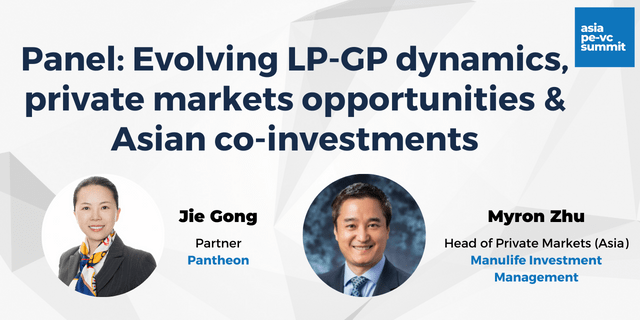
In this panel, we will explore themes such as the evolving LP-GP dynamics, the rising trend of co-investments, secondaries and continuation funds and the impact of the pandemic on the overall private investment landscape.
We feature Jie Gong, who is a partner at Pantheon and a member of the firm’s Asia Regional Investment Committee and the Global Co-investment Committee. Some of the hot topics we will cover are: What are the short-term and long-term impacts from an LP point of view? Will LPs be more choosy in selecting fund managers, as well as the changing LP-GP dynamics. We will also ask Jie about China’s ongoing scrutiny across technology sectors and its impact on risk capital investors. Will it have an impact on their exposure to China, which is the second-largest market outside of the US for LPs?
We also have Myron Zhu who leads Manulife Investment Management’s private market business in Hong Kong, and is uniquely placed to highlight third party management of Asian co-investments, and how Canada’s largest insurer is broadening its offerings as it builds out its private equity, private credit and real-estate teams, and allowing other investors to participate.
As a GP sponsor, what does Manulife look for in managers it backs? What are the long-duration and cash-yielding assets it is seeking out? What are the sectors the global wealth and asset management firm is bullish on as it increases its exposure to Asia-Pacific private markets? We will also be asking Myron about opportunities in renewables, ESG and the digital infrastructure space.
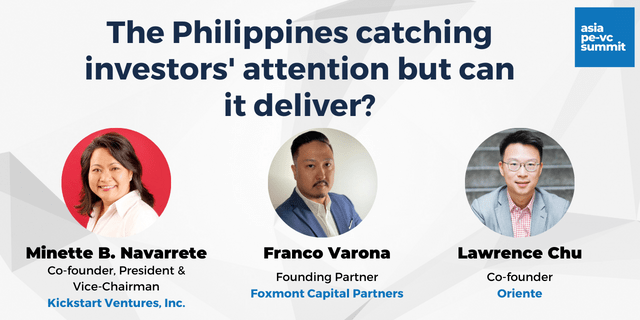
With favourable demographics, policy changes and an accelerated pace of digital adoption, the Philippines’ startup landscape is finally catching the interest of investors, particularly in the fintech and e-commerce space.
Of the 112-million-strong population, nearly 70% remains unbanked, leaving a huge addressable market for financial services. To top it, as the country’s middle-class continues to grow, about 70 million Filipinos are expected to be using smartphones by 2025, leading to the creation of a potentially new market for online consumers.
According to DealStreetAsia’s Data Vantage statistics, global investors were involved in $170 million worth of fundraising in the Philippines in the past 21 months. Compare this to 15 deals that raised a total of $25 million in 2019, signalling an increase in interest in the emerging market.
This panel will explore the potential of the market and the top themes investors are betting on and why.
Our first panelist is Minette B. Navarrete, vice-chairman and president of Kickstart Ventures, Inc., the corporate venture capital subsidiary of Globe Telecom. Kickstart Ventures is backed by Globe Telecom, Ayala Corporation, and Singtel. Kickstart Ventures manages the Philippines’ largest technology venture capital funds, investing globally in early- to growth-stage tech startups via three funds, including Ayala-backed Active Fund, which closed at $180 million last year. In 2019, Kickstart managed to secure a big exit when Indonesia’s Gojek acquired its portfolio company Coins.ph. Its portfolio includes Xendit, Zalora, Snapcart, Nextpay, mClinica, among others.
We have Franco Varona, managing partner, Foxmont Capital Partners, which invests in early-stage Filipino-focused and Filipino-founded startups. Foxmont’s portfolio includes Edukasyon, Nextpay, Booky, Edamama, among others. He is also a co-founder and director in the boutique agency Global Media Post. Prior to Foxmont, he was the founding general manager of Grab Philippines.
Our third panelist is Lawrence Chu, co-founder, Oriente, a Hong Kong-based fintech startup that has a deep presence in the Philippines. Oriente is the parent company of Finmas, Cashalo and Finizi, three online lenders based in Indonesia, the Philippines and Vietnam, respectively. Chu has over 16 years of international investment experience and founded investment company BlackPine. For Oriente, the Philippines and Indonesia are two of its strongest markets that have seen significant user traction and growth. Oriente most recently raised $50 million Series B funding. In 2018, it raised $105 million equity from the founders and a group of family offices including members of Malaysia’s Berjaya Group, the Philippines’ JG Summit Holdings, and Indonesia’s Sinar Mas.
Join this session to know more about SE Asia’s untapped market.
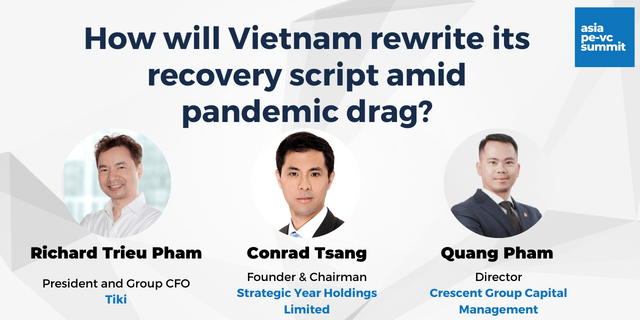
In 2020, when the COVID-19 pandemic became a global healthcare crisis, Vietnam was among the most resilient nations to bounce back to resume business activity. While other ASEAN economies had forecasted negative growth in 2020, Vietnam’s GDP managed to grow at nearly 3%. Since then, investors have been bullish about Vietnam, backing investments in the country despite difficulties in undertaking deal due diligence. Cut to 2021, with low vaccination rates and an increase in the number of cases, local businesses have been witnessing a prolonged lockdown situation.
In the changed scenario, will Vietnam prove to be equally attractive as a destination for foreign investments by global MNCs? What will be the somewhat delayed impact of the pandemic on Vietnam’s economy, particularly the startup space? Is Vietnam as a single-country market an attractive bet for risk capital investors backing tech startups?
Our panelists will share their perspectives on the opportunities and challenges in the emerging SE Asian market.
We have Conrad Tsang, chairman & co-founder, Strategic Year Holdings Limited, a Hong Kong-based private equity firm that has increased its investment activity in Southeast Asia. Strategic Year has invested in Vietnamese education startup TEKY Holdings. The firm is spending more resources and time in markets like Vietnam, Indonesia, Cambodia, the Philippines, and some cross-border opportunities.
Meanwhile, Quang Pham oversees Vietnam as well as other SE Asia markets for Crescent Group Capital Management (Crescent Point). In Vietnam, Crescent Point had invested $36.2 million in integrated children’s lifestyle platform N Kid Corporation in 2019. Pham was earlier the co-founder and a senior investment manager at VI (Vietnam Investments) Group, one of the largest Vietnam-focused private equity firms.
Our third panelist is Richard Trieu Pham, group president & CFO at TIKI Corporation – Vietnam’s largest homegrown e-commerce platform. TIKI is seeking $200 million in its ongoing Series E funding that has raised nearly $100 million from both strategic and financial investors including insurer AIA, Taiwan Mobile, AppWorks, CE Fintech Capital and Nextrans. The online marketplace has recently set up Tiki Global Pte Ltd, a Singapore holding company, aiming for an overseas listing.
Join this session to get an overview of opportunities in Vietnam.
